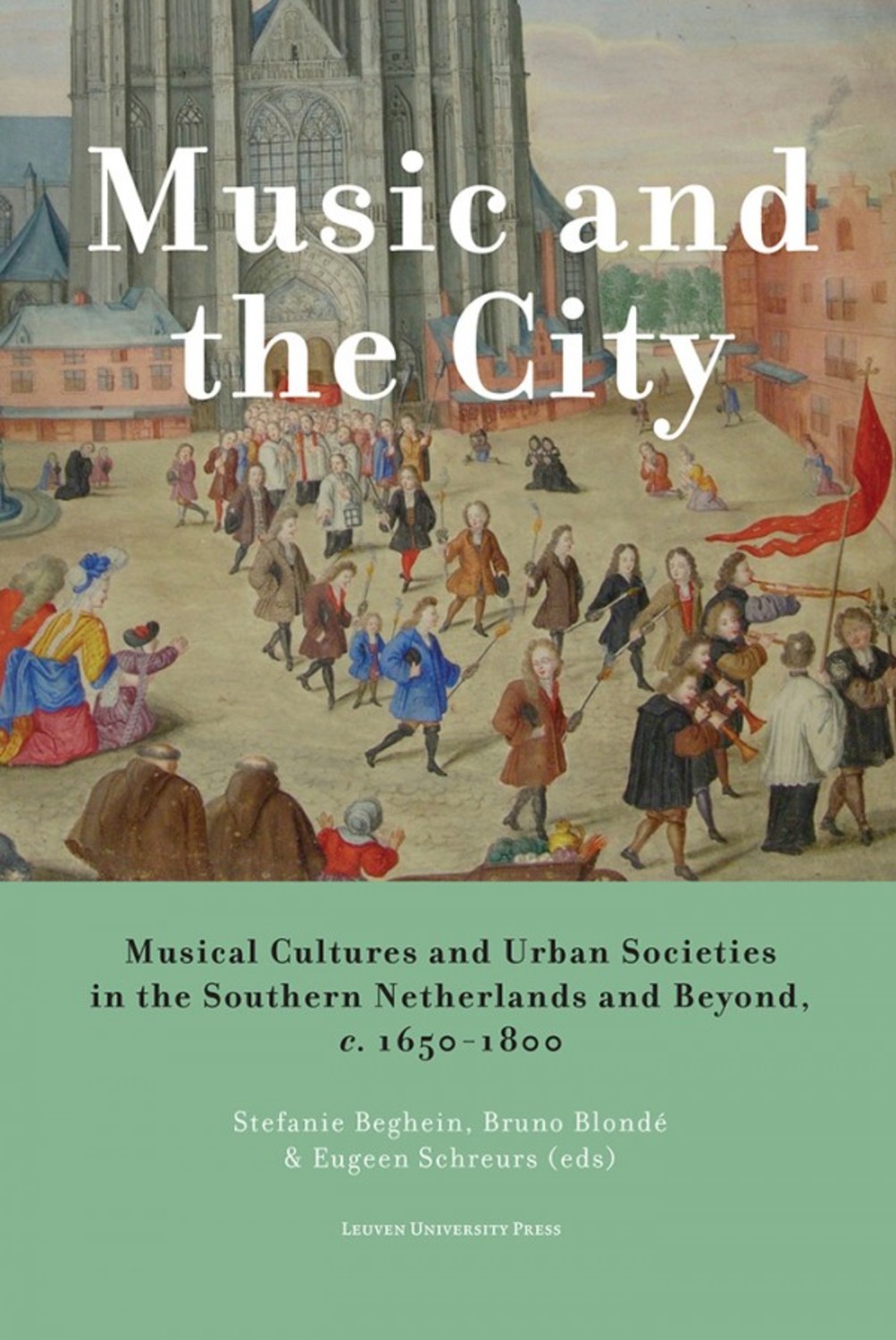
Music and the City
Musical Cultures and Urban Societies in the Southern Netherlands and Beyond, c.1650–1800
Edited by Stefanie Beghein, Bruno Blondé, and Eugeen Schreurs
Regular price
€35.00
(including 6% VAT)
Sale
Edited volume - ebook - PDF
VIEW Edited volume - paperbackThe societal dimension of music in urban life in the late seventeenth and eighteenth centuries
Although early modern urban musical life has been the object of investigation with several researchers, little is known about the ways in which musical cultures were integrated within their broader urban environments. Building upon recent trends within urban musicology, the authors of this volume aim to transcend descriptive overviews of institutions and actors involved with music within a given city. Instead, they consider the urban environment as the constitutive context for music making, and music as a significant aspect of urban society and identity.
This publication is GPRC-labeled (Guaranteed Peer-Reviewed Content).
Contributors: Bruno Blondé (University of Antwerp), Timothy De Paepe (University of Antwerp), Rudolf Rasch (Utrecht University), Bruno Forment (Free University Brussels – Ghent University), Stefanie Beghein (University of Antwerp), Eugeen Schreurs (Artesis University College Antwerp, Royal Conservatory), Tanya Kevorkian (Millersville University), Anne-Madeleine Goulet (École française de Rome), Louis P. Grijp (Utrecht University – Meertens Institute)
Table of contents
Music and the city. Musical cultures and urban societies in the Southern Netherlands and beyond, c. 1650-1800
Stefanie Beghein & Bruno Blondé
I. The urban stage -; staging the city
“Les operas etaient en vogue”. Opera in a city in crisis: Antwerp between 1682 and 1794
Timothy De Paepe
Opera in a different language. Opera translations in the Dutch Republic in the eighteenth century
Rudolf Rasch
Music-making ghosts: eighteenth-century Rome as operatic memory machine
Bruno Forment
II. The church and the streets
Music and funeral practices in Antwerp, c. 1650-1750
Stefanie Beghein
Church music and minstrel music in the Southern Netherlands, with a special focus on Antwerp
Eugeen Schreurs
The church, the street, the tower, and the home as sites of religious music-making in urban Baroque Germany
Tanya Kevorkian
III. Private music
Serious songs, musical practices and sociability in Paris at the end of the seventeenth century
Anne-Madeleine Goulet
Apollo's gifts. Dutch songbooks for the urban youth of the eighteenth century
Louis P. Grijp
Format: Edited volume - ebook - PDF
ISBN: 9789461661425
Publication: December 10, 2013
Languages: English
Eugeen Schreurs is Lecturer and President of the Academic Board at the Royal Conservatory Antwerp (Artesis Plantijn Hogeschool, University College Antwerp).
Stefanie Beghein is Research Fellow at the Centre for Urban History (University of Antwerp).
The objectives of the conference 'Sounds of the City' were to approach music from a non-institutional perspective (but aren't theatres institutions?), and to demonstrate the permeability of repertories and better locate the place of music in urban social life. Although the geographic variety of the subjects addressed in the proceedings hinders their progress towards the second objective, they nevertheless bring to light interesting lines of enquiry that deserve further attention.
Henri Vanhulst, (translated by Chris Murray), Music and Letters, Volume 96, Issue 1, Pp. 123-124.
De redacteuren van 'Musical Cultures and Urban Societies in the Southern Netherlands and Beyond' stellen dat het belangrijkste doel van deze bundel is om bij te dragen aan het begrip van muziek in de stedelijke samenleving in West-Europa gedurende de late zeventiende en achttiende eeuw. Dit doen zij door verschillende perspectieven te integreren: muziekwetenschap, geschiedenis, theaterwetenschap en literaire kritiek in het bijzonder voor wat betreft de Zuidelijke Nederlanden. [...] In de bundel werken de auteurs vanuit een vrij recente methode die bekend staat als 'urban musicology', dat wil zeggen dat men muziek en musiceren wil verstaan vanuit de stedelijke omgeving en identiteit. [...] Wanneer we de inhoud van deze artikelen vergelijken met het door de redacteuren beschreven doel van de bundel, is de conclusie dat ze daaraan voldoen, hoewel dat bij een enkel artikel meer indirect het geval is. Het zou waardevol zijn, wanneer dit boek nog eens wordt gevolgd door 'Music and the Village'.
Jan R. Luth, De Zeventiende Eeuw, Vol 30, No 2 (2014)
Zo biedt deze bundel, ondanks het gebrek aan een dwingende thematische of strikte geografische eenheid, toch een rijke verscheidenheid aan bijdragen. Deze bieden veel informatie en inspiratie, niet alleen aan de musicoloog maar zeker ook aan de historicus geïnteresseerd in de culturele en sociale geschiedenis van de vroegmoderne Europese stad.
J.W.J. Burgers, Huygens Instituut voor Nederlandse geschiedenis
